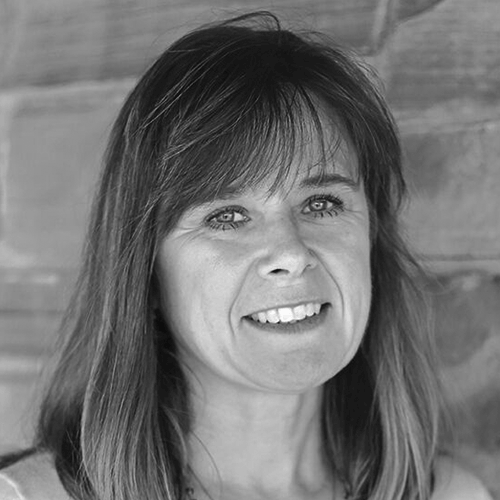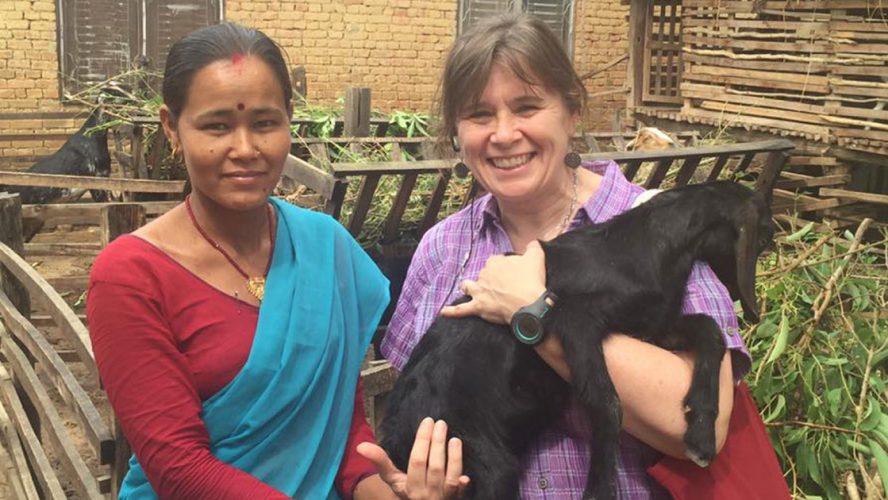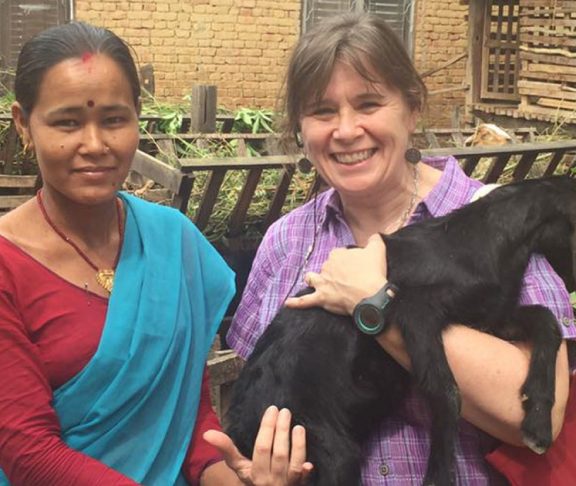
Hilary Haddigan
Chief of Mission Effectiveness, Heifer
What is the mission of Heifer International, and how does the organization work? Can you explain the importance of fighting hunger in a sustainable way?
Our mission is to end hunger and poverty and care for the Earth. We believe that the collective power of food security, economic development and environmental sustainability can empower small-scale farmers on the path to living incomes. We do this by helping people start or expand farmer-owned businesses, cooperatives and social enterprises. We integrate vulnerable groups into market activities to create lasting wealth that is rooted and stays in communities through local ownership. We equip socially-minded entrepreneurs, especially women and youth, with the livestock, skills and resources needed to achieve a sustainable reduction in hunger and poverty.
What has been the most rewarding part of working for a non-profit? What’s the best advice you’ve received along the way?
I love spending time with my Heifer colleagues — former volunteers and staff who have given so much to bring Heifer to where it is today and those radical thinkers across our organization who get to the root causes of issues. And most of all, I love to connect with country staff and communities who help ground my work in very practical ways. The best advice I have received is to avoid trying to control things. People have within them a deep reservoir of knowledge, skills and capabilities and can change their own lives — if they have an enabling environment and access to resources. I have seen this throughout my working life and see it very powerfully here in Heifer: we help with livestock and training and then the communities we work with make change happen.
What are the biggest challenges that require change to improve food security and hunger issues within developing countries?
We want to move small-scale farmers completely out of poverty by helping them achieve living incomes. This requires helping farmers connect to markets and a much deeper level of project implementation. We also need rigorous evaluation, metrics and communication across our work to ensure best stewardship of funds for strong results. This is a main objective of my work with Heifer. We want to clearly demonstrate the long-term effects of farmers earning living incomes and identify any barriers to success. Donors expect this, and we expect this of ourselves. So increasingly, all organizations are having to really step up to demonstrate impact.
What about within America? Resources exist to eliminate hunger nationwide but are not properly allocated. In your opinion, what needs to happen to change this?
Heifer’s domestic work is centered on building and reviving local food systems. In Arkansas, the organization works with two farmer cooperatives: Foodshed Farms, whose farmers produce certified organic and certified naturally grown fruits and vegetables, and Grass Roots Farmers’ Cooperative, a group of small-scale farms focused on pasture- and grass-fed meats. There are about 46 farmers between those co-ops, and they have already created 27 other full-time employment opportunities. There’s a ripple effect in what we’re doing with this investment to grow local economies.
What do you believe are the top ways to help fight the hunger crisis?
We are working directly with many corporate partners who are looking to source commodities such as cocoa, coffee and vetiver. These partnerships create jobs and provide markets for the products that small-scale farmers produce — all of which helps us reach our goal of ensuring living incomes in the communities where we work. Consumers can make a difference by buying products that are sustainably sourced and by supporting companies that provide living incomes for their farmer suppliers.
What is your favorite response from someone who has received one of Heifer’s farm animals?
On a recent trip to Africa, I visited a community where we work with persons who are disabled, living with AIDS or otherwise vulnerable, to provide livestock and related training. We know that poverty is often the result of discrimination and racism, and give priority to groups who have been traditionally neglected. I met a farmer who does not allow his wheelchair to prevent him from working his garden and tending to his goats. My own brother has a disability and to see this farmer thriving was a very special moment and connection for me.

